

Discover more from DARK FUTURA
Intellectual Vanity: The Lost Art Of Admitting Uncertainty
Intellectual humility as a dying art form
Our current day and age has devolved into a sad state where people have lost the ability to reason or argue properly. This has put all discourse on a flimsy footing. In a recent article I invoked the famous maxim about the wise man being he who can hold two opposing thoughts in his mind at the same time. But the other major ability lost to the generations is the ability to not only admit when one is wrong, but to change one’s mind and beliefs based on new data.
As we all know, things have gotten polarized to such a degree that everything is dogma, dogma, dogma, with a helping of demagoguery and the madness of proselytization disguised as ‘discourse’. It’s the age of messianic beliefs which are ironically shallower than ever before. Very few people retain the gift of nuance, of minutiae, and fractional comprehension. Extremes are the order of the day, and to dismiss one would be to believe its opposite.
It’s a byproduct of human nature. When faced with increasingly ‘extreme’ opposition, our natural fight or flight instincts urge us to ‘out-compete’ what we perceive as an attack with a reciprocal response. We instinctively understand that only force of might can stand against might, even if it’s the non-physical might of intellectual rationality.
It’s the same reason people become instinctively irate when addressed in an antagonizing manner. Their defense mechanisms kick in and they find themselves assuming lower vibrational stances despite not even recognizing why exactly they feel so rattled. Sometimes we walk away from confrontations wondering, in perplexed annoyance, what even happened, why we even got so subcutaneously unnerved by words and tones that weren’t overtly offensive or aggressive.
Similarly, when it comes to discourse and ideology, people feel a variety of irrational responses coming over them when faced with a boldly threatening idea. It’s as if, instinctively, we feel that if our ideas or responses don’t match our opponent’s in vim and heft then they can’t naturally stand up to or push back against the ideology that so threatens us. So all discourse devolves into increasingly polarized dogmatic shouting matches. Often, we take an extreme position merely to offend, incense, or feign some type of strength just to win a short-lived ‘gotcha’.
It’s compounded by the contemporary inability of people to ever admit not only being wrong, but not knowing the answer to something. Have you ever wondered why so many people these days choose to dissemble or deflect rather than simply stating “I don’t know”? To admit we don’t know is to take a plunge into the abyss.
Today, in the arena of puerile back and forths which mark our societal discourse, to admit not knowing is to reveal a crucial weakness, akin to the big Poker ‘tell’, to be avoided at all costs. I’ve lost count of how many people I’ve known or interacted with, both in person and online, who maintain a nigh-congenital inability to admit ignorance on a given subject. They would sooner spin a tortuous yarn filled with disingenuous non sequiturs, false starts, and abortive explanations—anything at all to give the convoluted impression of knowing—rather than simply admit ignorance.
Observe any online exchange and people regularly would rather fill the dead space with volumes of circumstantial presumptions than to ever give even an inkling of an impression that they might be wrong, that there may be hidden vacancies in their mental library on the topic in question.
It can be considered an extension of the modern Instagram culture and the ills of online interconnectivity, where false ego constructs have become the standard conceits by which people paper over their insecurities and shortcomings. In our spirituality-bereft, ego-driven world, it’s a consummate sin to expose one’s faults, one’s lacunae of knowledge and experience. Everyone panoplies themselves under coats of armor of increasingly exaggerated achievement, experience, and skill. In a world where social media has incentivized preening highlights as representations of our lives, we inexorably feel left with no choice but to compete with an endless power-creep of bluster so as not to feel left out.
The byproduct becomes a society filled with people feigning to know everything; ignorance on any topic is an unacceptable admission of inferiority. It’s best to avoid and ignore rather than face such a consequence. Even if pressed, they’ll be compelled to add some desultory detail or flourish to at least pretend at having a connection to the question, no matter how discursive.
A dangerously false construct is created from these manifold lies, a precedence that we simply accept as natural, as part of the order of things. And when the rare exception to the rule comes along—a person unwilling to play the escalation game, a person true to themselves, to the authenticity of truth itself—they are treated like some kind of aberration, a pariah.
And what’s worse, since everyone has accepted this false-reality as a mutually confabulated illusion, in the same way theatergoers share the liminal suspension of disbelief with the actors on stage for the duration of a performance, that means the pariah who comes along and bursts that bubble is in fact assessed as the ignoramus, the know-nothing, the scapegrace—all for the sin of admitting uncertainty on a given topic. For to most people, dwelling in that hypnotic immersion for so long, they begin to truly believe that the lies they drape themselves with like so much decadent frippery are in fact tantamount to truth.
So what is that all to say? Well, for one, I strive to be open-minded and humble, refusing to take up the gavel of unquestionable knowing, instead always leaving room for some alternative explanation. Unfortunately, in our modern world this comes across as weak and feckless, an intellectual turn off.
Especially in the domain of the Grand Written Word, intellectual puissance and daring are respected above all. It’s the demagogue brimming with confident authority, wielding his incisive words like darts, rather than the timorously thoughtful scribe, which inspires the most adulation and in turn cozens the greatest lucre from the enraptured masses.
But it is not honesty. Nor integrity.
This problem rears its head most often where cold clinical facts rather than desert-eyed homilies are the main premium. In the land of geopolitical analysis, for instance, there is little room for indulgent woolgathering; people expect surgical facts, strict yes/no confidences. He who affects the best impression of the flinty-eyed water-bearer, with the boldest voice and brashest gestures, gets the worm. The anodyne scholar will not impress, but instead be consigned to a class of wafflers undeserving of the Promethean podium and its many just desserts.
The problem is, of course, to live up to this impossible standard, the average water-bearer must in fact paper over all those inconvenient lacunae of understanding, those ever-present vacuities of information. He must present a perfect front of the all-knowing. And this is why so many analysts and writers make such grand music full of soaring overtures, which ultimately amount to fluff and empty notes. Truth has never existed only in the frenetic cadenzas and brawny crescendoes, but also in the breathy interludes and reflective adagios.
But no one wants to hear that; the unknown is depressing, uninviting. It’s not as dramatic as a ‘mostly-true’ rendition with the blanks liberally filled in the same way a predictive A.I. algorithm can interpolate the colored pixels of a compressed image to make it look smoother and richer.
The fact is, to admit ignorance is to be unexciting. It’s to admit being human, and to shatter the mythos you might have inadvertently constructed for your audience. They place their beliefs in you, and over time, without even knowing it, they come to expect not the truth, but a good story. They come to be entertained and enthralled more than disabused and edified. Of course, they lie in telling themselves it’s the truth, but it’s nothing more than that mutually suspended disbelief, that shared communal dream, where they entrust you to lead them on a journey, and fill in the gaps with whatever gravel comes to hand, so long as you don’t burst their precious bubble.
People don’t want the milquetoast and the laodicean, they want the daring and Promethean, the larger than life, even if it comes at the cost of a few pesky, inconvenient truths. When faced with a more aggressive interlocutor in a public setting, one is pressed to match his level of authoritative certainty on every fact, even when one knows unequivocally that the opponent lies, misleads, or exaggerates to fill his own dubious gaps. Yet, in the face of that, to take the side of truth and admit uncertainty on a given topic which, by its very nature may be uncertain, is to appear weak by comparison despite how utterly illogical it might be.
In this way, all public discourse has been gamified and relegated to a series of popularity contests or cheap point-scoring matches. The art of intellectual honesty is lost when we refuse to admit to the myriad uncertainties inherent to the very fabric of this world, and our lived experience of it.
The problem rears its head most in the online world, where a lack of obvious or clearly visible credentials creates an environment where observers have only the perceived authority in the words themselves by which to judge the exchanges. He who manages to verbalize his thoughts in the most convincing manner wins the day. But that’s not how reality functions. A series of gilded phrases wrapped in strong-sounding language have no intrinsic causal relationship to being factual or true. On a complex and nuanced topic, he who admits his uncertainty looks weak while the one who pretends at decisive knowledge is declared the winner of the duel.
It is understandable, to an extent. Where anonymity reigns, there isn’t much to cling on for people to make their critical value judgments. Only the words themselves can be judged—and their inherent confidence or lack thereof. However, most older people who’ve lived long lives and experienced employment in places where things of consequence hung on the balance of a leader’s words and virtues instinctively know how much can be lost by staking everything exclusively on spoken words and promises; things which are ultimately hollow.
Shrewd investors, for instance, will note the dangers of falling for big-talking idealists who promise the world with a level of confidence disproportionate to one’s better senses. Such personalities give pause, and antithetically bring discomfort rather than inspiring confidence in the investors. These types of people become known as dangerous over-sellers and under-deliverers, and are soon ignored or cast out. The point being, when there’s something on the line, people quickly become wise to gimmicks.
Unfortunately, there’s nothing really on the line to the average blog-goer and Twitter-follower; many readers delude themselves with the notion that the truth is at stake. But as established before, a good portion of them are really there just for the entertainment value, the story and sing-along, even if they refuse to admit it to themselves. And in such cases there’s no incentive to be like the shrewd investor, dumping the dangerous demagogue for overindulging in sugar-coated fantasies.
These are all just the barest reasons for why public debate today is a pointless endeavour. Particularly any sort of planned or challenge-initiated debate, which more often than not is used merely as opportunity for the challenger to hoist a series of superficial traps and gotchas to earn a hollow, short-lived ‘triumph’ for their little brood of gormless followers. Spontaneous debates are undisciplined farragos of sea-lioning, baiting tactics, and every conceivable logical fallacy, cognitive bias, and philosophical farce imaginable, all meant to score a dopamine boost of cheap gimmick-points to the ‘winner’.
This is exacerbated by the modern advent of ‘memes’, liberally utilized to add extra oomph to each perceived ‘dunk’. These memes operate merely as rage-amplifiers which further compound all the other issues, leading opposing parties to be more cagey and defensive. Imagine if, in the 1950s or earlier, each public debate or general spurt of discourse was characterized by one party propping up an oversized sign bursting with laughy faces and crude majuscules spelling out ‘MORON!’
Even in the process of writing this article, I happened to stumble on a video ‘debate’ between two reasonably learned individuals on Twitter, only to watch it devolve into the usual underhanded backbiting, ad hominem, strawman, and genetic fallacy attacks. We’ve become so polarized, and modern culture has normalized these point-scoring ‘dunks’ to such a degree, that the average human has lost all impulse control for reining in the adrenaline spikes and defensive postures leading to such, almost involuntary, passive aggression. The debate always devolves not into edifying or proving a certain point of fact, but making sure the adversary’s ego suffers some humiliating blow.
This is all part and parcel of the ‘death of long form’ I eulogized in this article:
There I expounded on how the elites have dumbed down our language, shortened our neural pathways to keep us distracted as agitated agonists.
But the most striking thing in the video debate was how one side, even when faced with a correction by way of an irrevocable fact, simply refused to concede the point, and instead tried to undermine the whole exchange with a series of offhand non sequiturs whose only intent was last-ditch obscurantism, the puerile need to keep a single point of victory from going to the opponent at all costs.
And it perfectly underlines my argument. The person suffered from an inability to admit uncertainty. When pressed, it caused a sort of mental panic and a scramble to pad the shortcoming in any way possible; anything but to admit ignorance, or limitation of any kind.
This is the problem today.
I knew a person once who had a pathological inability to not only admit fault and uncertainty in this manner, but even to admit a hypothetical inability to do something; anything at all. This person was dangerous to be around because he would always over-promise and under-deliver. If you asked them for directions in an emergency situation, it was as if some intensely overriding insecurity prevented him from being able to say he didn’t know; an inferiority complex at the notion of not being always right or always knowledgeable about something. This person would rather take the chance at damaging your relationship, at causing you to lose money or get into a dangerous situation by way of faulty information, than look the fool, feel unneeded and passed over.
This pathological inability to ever say no got so bad I even teased the individual with a series of increasingly ridiculous hypothetical questions. First, I’d juice them up by asking a few normal feelers like, “Do you think you can steal that car right now and drive off without getting caught?”
“Yeah, sure, of course.”
Then progressing to something like, “Can you jump clear over that bus rolling down the street?”
After a brief hesitation they’d still answer in the conditional affirmative, naming some minor alterations to reality that might be necessary to carry out the task.
Finally, I’d finish with something absurdly over the top like “Can you jump over this building?” just to finally snare them.
But just like the debate opponent in the previous example, the person would nonetheless find pretense to answer in the affirmative, no matter how preposterous the requisite conditions had gotten at that point. Sure, they were tongue-in-cheeking the answer by now, too, but the deranged inability to ever admit not being able to do something was nonetheless fueling the charade.
Another way to put it is that these pretensions are contagious. The more your ideological opponents put up a front of infallibility, the more you’re compelled to do so, so as to not look weak or ignorant by comparison. Particularly in today’s climate, where the oversaturation of information results in diminished attention spans and inability to follow long-form thinking, people are ever looking for the quick dopamine boost of information which conforms with their preconceived notions.
This has a tendency to make people who speak with feigned authority to stick out and gain attention, because they provide the quick affirmative boost which followers can quote and repost as their little weaponized nugget to dunk on someone in an online exchange. The person who chooses honest uncertainty does not make splashy, quotable bylines and often must support his reasoning with a longer form of explanatory supposition which goes against the grain of modern appeals.
Bold, affirmational statements have a seductive power over their audience, and people often subconsciously prefer the confident but inaccurate statement, over the technically more accurate, but wishy-washy or wavering one. This is compounded by another insidious consequence of our modern discourse: which is that, not only do people have short attention spans, but we’ve been inured by years of mainstream media gaslighting and lies to simply always forgive and forget, no matter how severe and recursive one’s misconduct might be.
This creates a sort of moralistic black hole where very little accountability exists for people who create false icons, propagate platforms of deception and exaggeration. People and institutions both have gotten free passes for so long, for such a wide variety of malfeasances, that bad actors now know by force of habit that there will never be repercussions for even outright lies, much less dishonest and disingenuous equivocations of discourse.
It results in a sort of lawlessly amoral wild west where anything goes and honest debate is overshadowed by sheer machiavellian gamification tactics where the most devious and cutthroat dishonesty wins the day, and the perpetrator is never held to any measure of culpability. A society which doesn’t hold dishonesty to any sort of account is one that will run rampant with moral piracy.
I for one refuse to stoop to that level, and strive to always admit uncertainty in cases where it would be ethically wrong to pretend confidence in a tenuous position. This happens more often than most of us would care to admit, given the nature of the complexities involved in things like geopolitics, or even some of the highly nuanced cultural topics. Unfortunately, this has the effect of appearing as limp vacillation or lack of confidence compared to people who bleat their unfounded certitudes. These people invariably turn out to be wrong and are never held to account or penalized by their audience in any way because modern attention spans have atrophied into atavistic prunes. I’ve lost count of how many people proclaimed bold but groundless narratives, only to be proven wrong, but had it all forgiven and forgotten by their audience in a matter of days.
Now more than ever, we must fight the power-creep of pretense and propaganda by hewing to a certain measure of moral and ethical devoir in daily discourse and analysis, be it geopolitical or cultural. There are many positions vis a vis the right/left, conservative/liberal culture war where I refuse to take a side just because it checks the box for the clique or tribe I’m ‘obliged to be’ a part of. But of course in politics, too, one feels that rising pressure of ‘solidarity’ which impels us to strengthen the lines against ideologically radical foes, by adopting a similarly radical, intransigent stance. And in this way, the charade escalates on, with both sides entrenching themselves into increasingly calcified positions simply because they perceive the other side to be doing so.
And it is true: unified fronts do work, which is why the tactic is adopted so universally by most of us. But there has to be some kind of balance to maintain intellectual integrity. Ultimately, it’s up to the discerning reader to distinguish between empty bluster and educated demur, and to hold accountable those who repeatedly abuse the state of things, taking repeated advantage of the lack of accountability that’s so pervasive in modern discourse.
If you enjoyed the read, I would greatly appreciate if you subscribed to a monthly/yearly pledge to support my work, so that I may continue providing you with detailed, incisive reports like this one.
Alternatively, you can tip here: Tip Jar





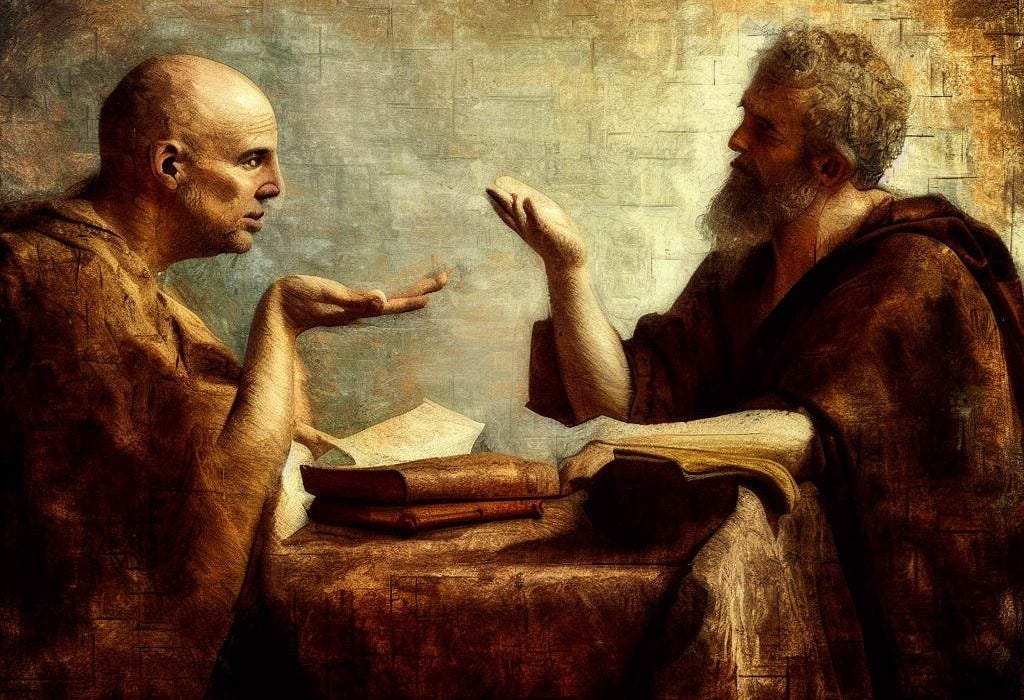

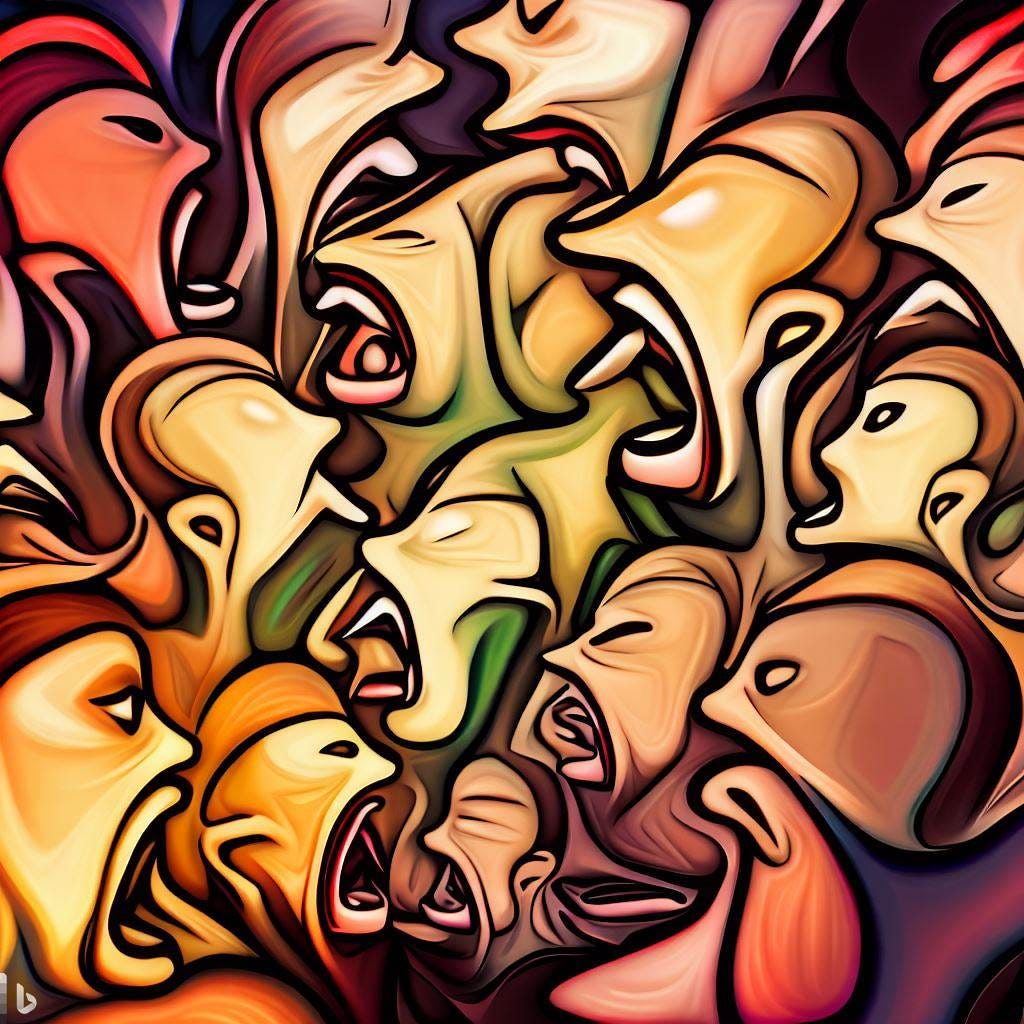
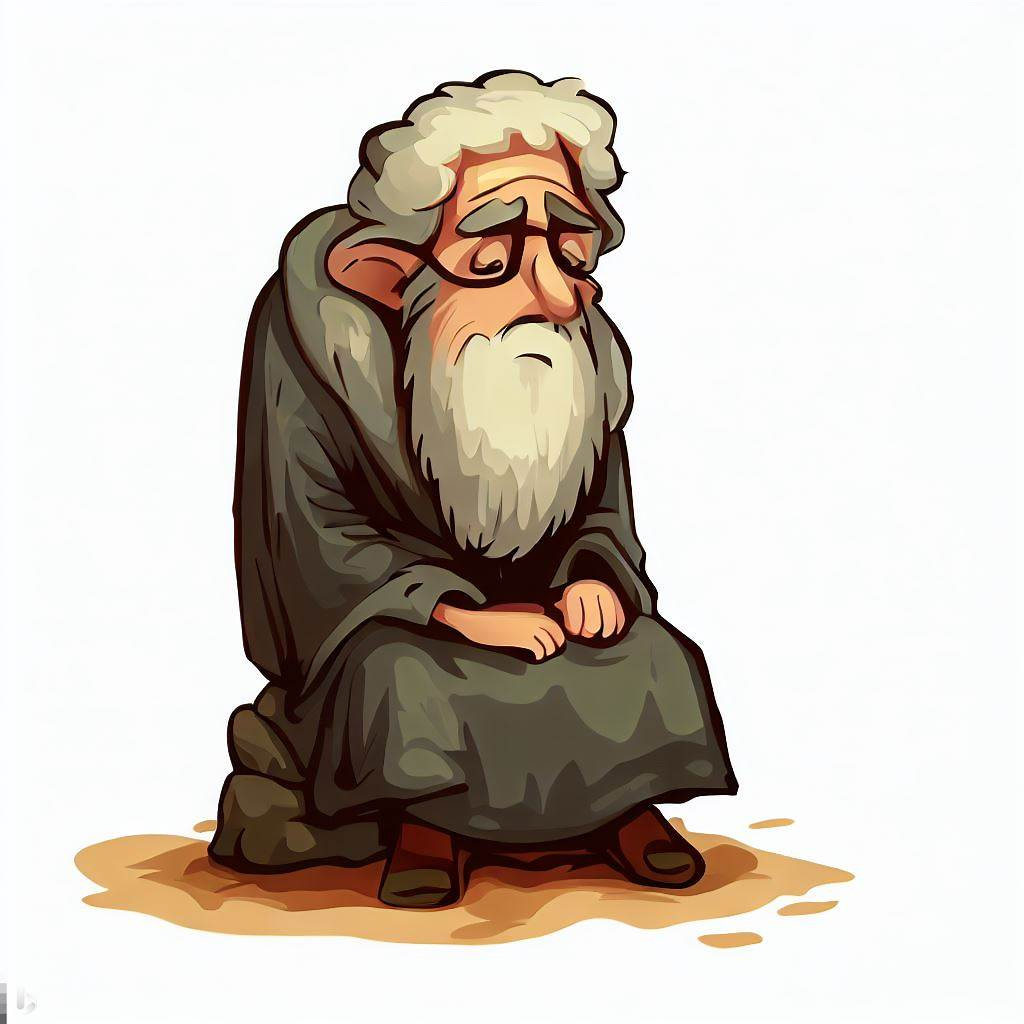

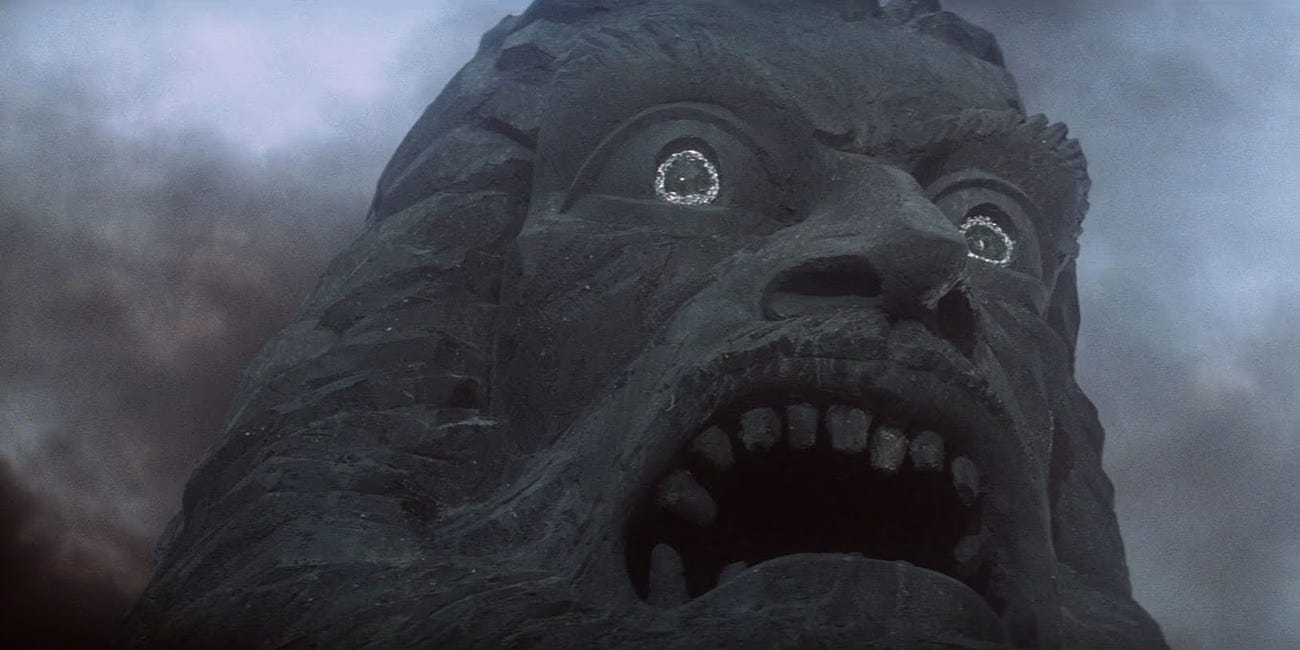







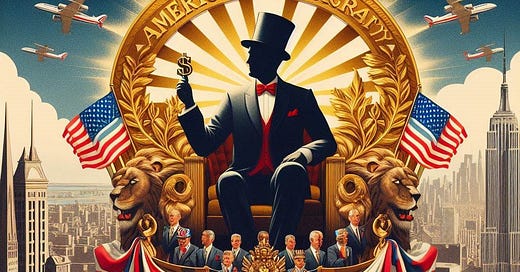



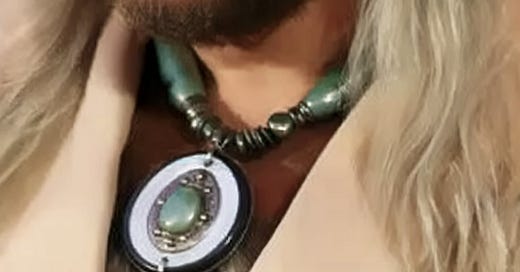

This is why I love you brother. You get it better than anyone I have ever read. You use hardcore facts and back them by a ridiculous amount of sourcing but only present as truth if you are concrete certain. At the same time you are not afraid to used critical logic and thinking in the abstract.
As stated the quick zings from both sides is a sign of the times. People have traded knowledge and wisdom for some cheap thrill that gives them a rush. Its everywhere in the body politic. Up until last fall I was exceptionally fearful of how all this would unfold (crumbling of America). I thought it could be avoided if enough people awakened. I believe it was the right instinct and in theory it could have worked. However I found some solace when I realized there's no way to accomplish this. Hard times are on the menu in some fashion and that will play necessary part to getting us back on to the righteous path.
That was a homily. You are definitely a master of the subject having I imagine spent much time reading the comment section of your own postings. Thank you.